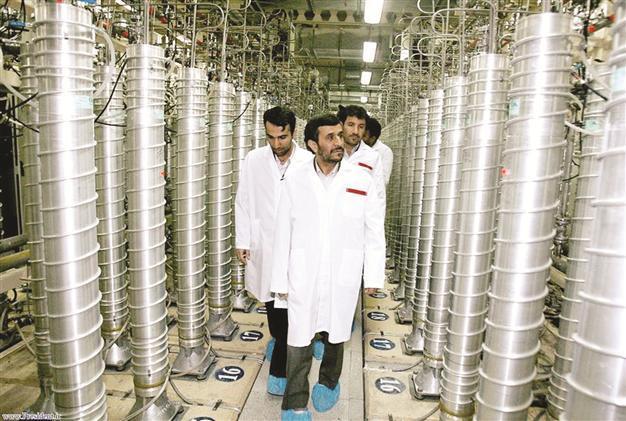British spy agents ‘foil’ Iran’s bid to obtain nuclear weapons
LONDON

Iran’s President Mahmoud Ahmadinejat visits a nuclear facility in this file photo. If Iran acquires nuclear status, Israel and the US will ‘face huge dangers,’ says UK’s intel head.. Hürriyet photo
Britain’s foreign intelligence chief believes covert operations by his agents prevented Iran from acquiring nuclear weapons, but that the Islamic state will become armed within two years, the Daily Telegraph reported on July 13.In a rare public speech, MI6 boss John Sawers told a meeting of around 100 senior civil servants in London that British agents had foiled Iran’s attempts to produce a nuclear weapon as long as four years ago, according to the Telegraph.
“You’d have Iran as a nuclear weapons state in 2008 rather than still being two years away in 2012,” the report quoted Sawers as saying last week. When Iran does finally acquire nuclear status, the intelligence chief warned that Israel and the United States “would face huge dangers,” said the report.
“The Iranians are determinedly going down a path to master all aspects of nuclear weapons; all the technologies they need,” Sawers said. “I think it will be very tough for any prime minister of Israel or president of the United States to accept a nuclear-armed Iran.”
Iran has previously accused Israel and the U.S. of trying to disrupt its nuclear program through covert operations by Mossad, MI6 and the CIA. Several Iranian nuclear scientists have been apparently assassinated in recent years, while a powerful computer virus known as Stuxnet attacked the computer systems of their nuclear facilities. Britain and America have denied the allegations, but Israel has remained silent on the issue.
The U.S. unleashed a fresh wave of sanctions against Iran on July 12, ratcheting up pressure to convince Tehran to take seriously concerns about its suspected nuclear weapons program.
The actions impose additional sanctions on Iran’s nuclear and ballistic missile proliferation networks and identify Iranian “front” companies and banks to assist in compliance, the Treasury Department said. “The Treasury and State Department actions target more than 50 entities tied to Iran’s procurement, petroleum, and shipping networks,” the Treasury said.
More accuracy for Iran’s missiles
Iran has been subject to severe international economic sanctions over its controversial nuclear program, which Western powers believe masks an atomic weapons drive despite repeated denials by Tehran.
In the meantime, Iran has continued to show off its military power in recent war games, which, it said, are proof of its improved missile technology.
The war games this month showcased missiles with improved accuracy and firing capabilities, Iranian media reports said on July 13. Iran’s powerful Revolutionary Guards conducted the exercise in the central desert, firing ballistic missiles including a long-range variety meant to deter an Israeli or U.S. attack. The targets were models of foreign military bases, and the stated goal was to show that Iran’s missiles can hit Western bases and Israel.
Several Iranian news websites reported that 90 percent of the missiles hit their targets and that this demonstrated their increased accuracy. Another achievement, the reports said, was Iran’s capability of firing multiple missiles within seconds. This would challenge the U.S. or Israel’s ability to intercept incoming missiles should a war break out, the reports said.
Compiled from AFP and AP stories by the Daily News staff.
















